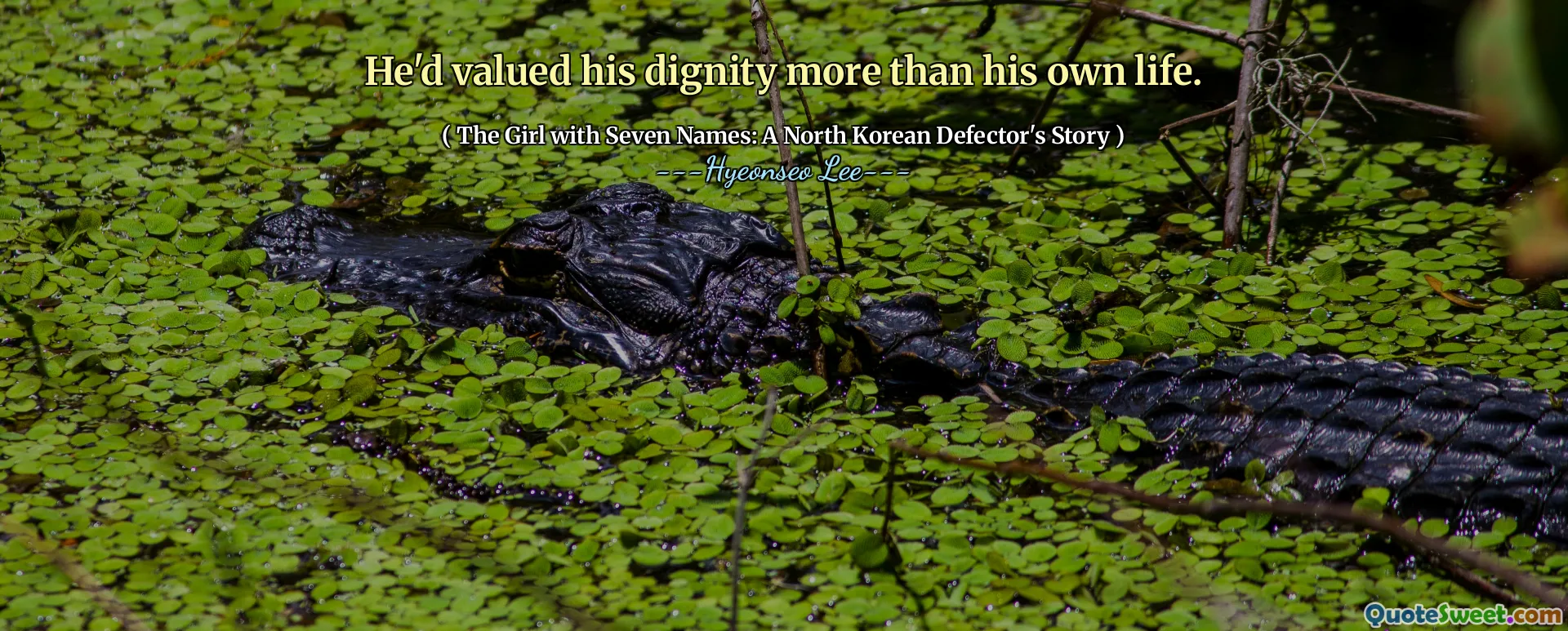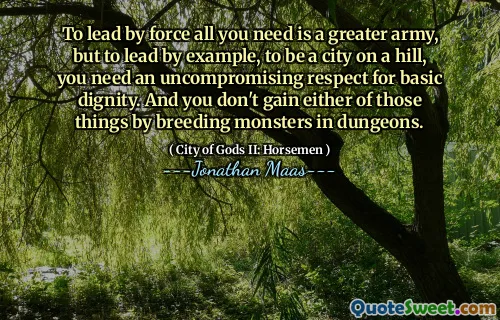
He'd valued his dignity more than his own life.
This quote underscores the profound importance that individuals can assign to their personal dignity, even above their own survival. In contexts of adversity or oppression, the act of valuing one's dignity can be a powerful form of resistance. It suggests that for some, maintaining integrity, honor, and self-respect is so vital that it overrides the instinct for self-preservation. Reflecting on Hyeonseo Lee's story in The Girl with Seven Names, themes of dignity often surface as core elements of the human experience in oppressive regimes like North Korea. People who face dire circumstances might choose to confront suffering rather than betray their principles or lose their self-respect. The assertion that dignity can be more crucial than life itself reveals how internal values shape decisions and behaviors, often at great personal cost. This perspective invites us to consider what principles we hold sacred and how these beliefs influence our actions, especially under pressure. It questions the true value of life if it is devoid of dignity and suggests that inner worth can sometimes serve as an ultimate moral compass. Such a viewpoint emphasizes resilience; even when freedom or life is threatened, maintaining internal integrity can serve as a form of defiance and empowerment. Ultimately, this quote reminds us of the intrinsic human need for respect and honor, illustrating that sometimes the greatest strength lies in choosing morality and self-respect over sheer survival, echoing the stories of countless individuals who have faced unimaginable hardships while holding onto their core human values.



